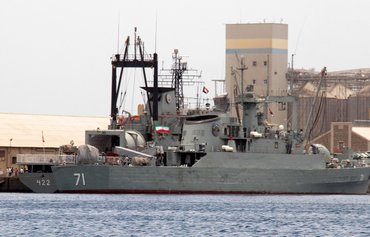The Iran-backed Houthi (Ansarallah) militia continues to pose a threat to maritime security in the Red Sea strait of Bab al-Mandab and the Gulf of Aden, vital routes for the regional and global flow of trade and commerce, analysts told Al-Mashareq.
The Houthis attacked late July two Saudi oil tankers in the Red Sea, causing "minor damage" to one of them, the Arab coalition said July 25th.
"The (Houthi) militias almost caused an environmental catastrophe," the coalition said, adding that the oil tankers -- each with a two million barrels capacity -- were "the target of a Houthi-Iranian terrorist attack".
Soon after the attack, Saudi Arabia temporarily halted all oil shipments through the strait, only to resume them August 4th after maritime transit through the area was secured, the kingdom’s Energy Minister Khalid Al Faleh said in a statement.
Freedom of navigation in sea straits is a guaranteed right of all countries, analysts said, noting that the Houthis' targeting of the two Saudi oil tankers reflects Iran's adoption of an economic warfare policy against the region and the world.
Maritime piracy
"The recent targeting of Saudi oil tankers by the Houthi militias is a blatant Iranian aggression and terrorist maritime piracy par excellence," said Saudi writer and political analyst Abdul Rahman al-Melhim.
"Iran's resort to maritime piracy and terrorising oil tankers and merchant ships coincides with the imposition of tough US sanctions on Tehran," he said.
It can be interpreted as a "retaliatory move against US allies in the region and those states that share common interests with it", he said.
The situation in the territorial waters remains dangerous due to the threat posed by Iran, fronted by the Houthi militias, to every commercial vessel or oil tanker that passes through Bab al-Mandab, he told Al-Mashareq.
The international community "must assume full responsibility" in confronting Iran's attempts to undermine security in the region, especially maritime navigation, which is the backbone of the global economy, al-Melhim said.
He said Iran is using the Houthis to wage a proxy war and achieve its expansionist plans in the region.
Iran is now revealing its "terrorist plans day after day as it perpetrates more regional crimes and practices that violate all international conventions and laws on land and at sea", he added.
Iran 'flouts all norms'
The recent Iran-backed Houthi attack against the Saudi oil tankers is "irresponsible", said Bahraini political writer and researcher Abdullah al-Junaid.
"It is confirmation that this rogue [militia] does not respect international law," he told Al-Mashareq.
"International policy protocols consider main waterways to be areas that must be kept free of security or military tensions as they are strategic economic corridors for most countries of the world," Saudi military expert Maj. Gen. Mansour al-Shehri (retired) told Al-Mashareq.
This applies to Bab al-Mandab and the area south of the Red Sea, especially the area near Yemen, he said.
Iran's Islamic Revolutionary Guard Corps (IRGC) "flouted all norms by attacking the two Saudi oil tankers through its Yemeni arm, the Houthis", he said.
This act of aggression is an "explicit threat to the security of international maritime navigation", he said.
It also shows that Iran is feeling the pressure after Yemeni forces, backed by the Arab coalition, succeeded in retaking a number of cities in Yemen that were under Houthi control, al-Shehri said.

![A general view shows the port of the Yemeni Red Sea city of al-Hodeidah on June 24th. [Abdo Hyder/AFP]](/cnmi_am/images/2018/08/10/13891-Yemen-Hodeida-port-600_384.jpg)






Putting any type of pressure on Iran will result in peace and tranquility in Middle Eastern and Arab countries, and it has our support.
Reply1 Comment(s)